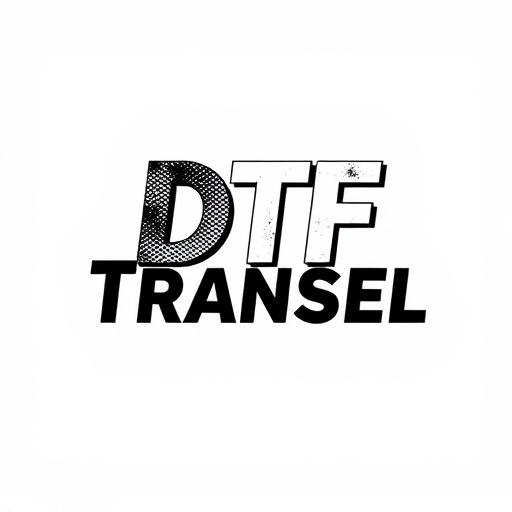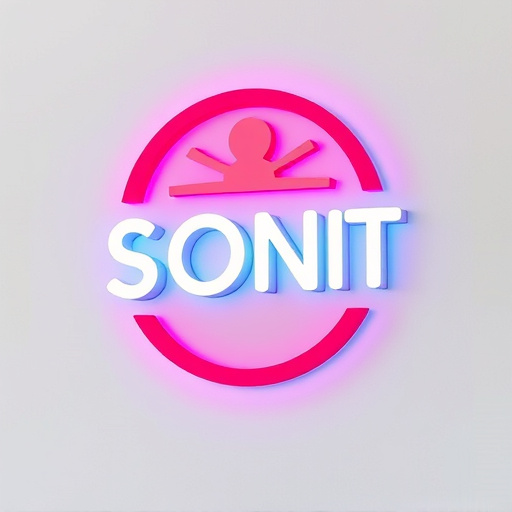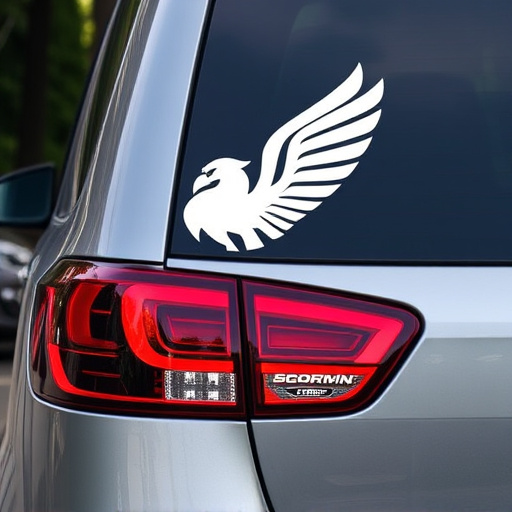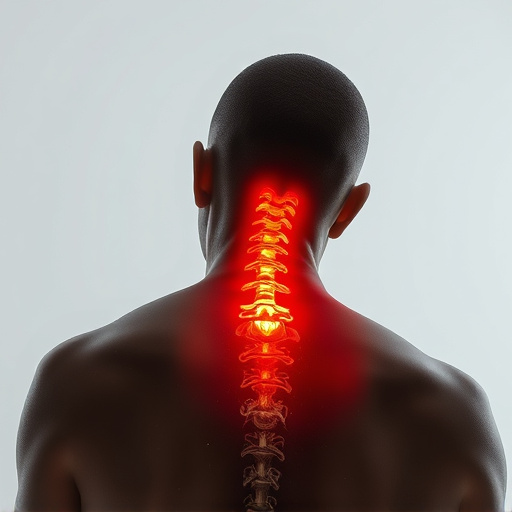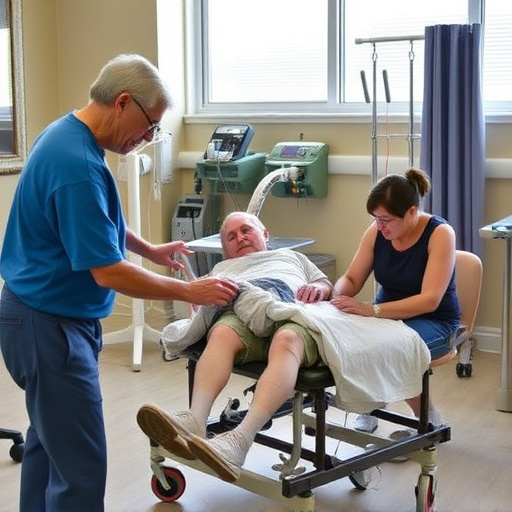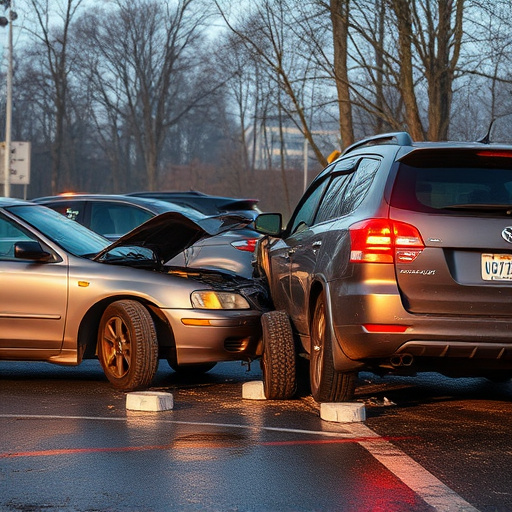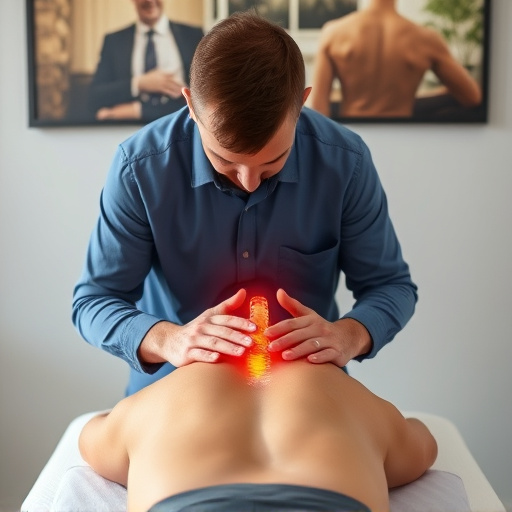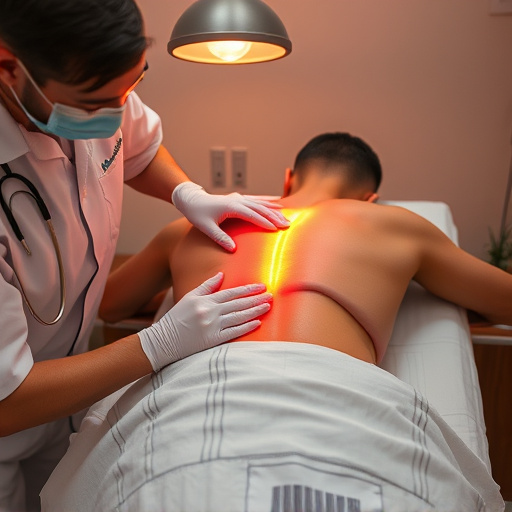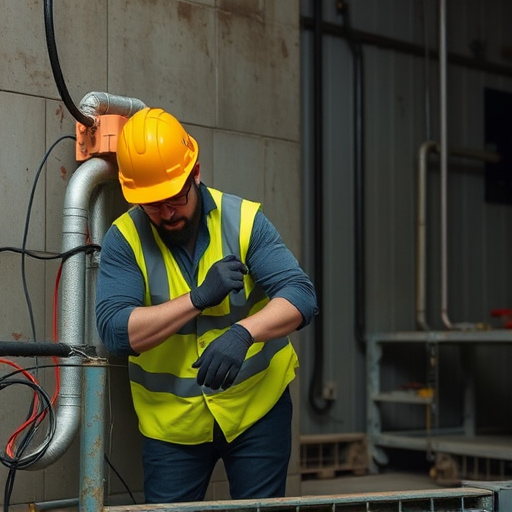After a motor vehicle accident (MVA), physical therapy is crucial for recovery, offering tailored techniques like shockwave therapy, exercises, and equipment to address various injuries. Therapists guide patients through non-invasive treatments, preventing long-term disabilities and promoting mobility restoration for a return to daily activities. Rehabilitation strategies combine therapeutic methods for comprehensive MVA care, ensuring safe and effective healing.
“Physical therapy plays a pivotal role in the recovery process following a motor vehicle accident, offering specialized care for a wide range of injuries. This comprehensive article delves into the critical components of physical therapy post-MVA (motor vehicle accident). From understanding the initial assessment to advanced rehabilitation techniques, we explore how therapists evaluate and address MVA-related traumas effectively. Discover the strategies and treatments that facilitate full recovery, emphasizing the importance of physical therapy in motor vehicle accident care.”
- Understanding Physical Therapy After a Motor Vehicle Accident
- Evaluating and Diagnosing MVA-Related Injuries Effectively
- Rehabilitation Strategies for Full Recovery from Motor Vehicle Accidents
Understanding Physical Therapy After a Motor Vehicle Accident

After a motor vehicle accident, understanding physical therapy’s role in your recovery is crucial. Physical therapists are experts in helping individuals regain strength and mobility after injuries sustained in accidents. They employ various techniques tailored to specific car accident injuries, focusing on pain management, rehabilitation, and restoring functionality.
One effective method gaining popularity in motor vehicle accident care is shockwave therapy for pain, which uses acoustic waves to stimulate tissue healing and provide pinched nerve relief. Other common interventions include specialized exercises, manual therapy, and adaptive equipment prescription. These approaches are designed not only to alleviate acute symptoms but also to prevent long-term disabilities, ensuring individuals can return to their pre-accident level of function and independence.
Evaluating and Diagnosing MVA-Related Injuries Effectively
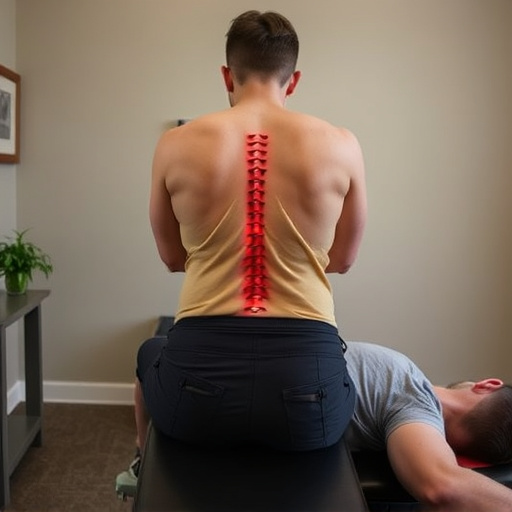
After a motor vehicle accident (MVA), victims often face a complex web of physical and emotional challenges. This is where physical therapy steps in as a critical component of MVA care. Evaluating and diagnosing injuries sustained in such incidents requires expertise and specialized knowledge. Physical therapists play a pivotal role in assessing the extent of damage, identifying hidden or latent issues, and developing tailored treatment plans for auto accident recovery.
They employ various techniques to detect and diagnose MVA-related injuries, ranging from visible physical scars and fractures to internal damage and chronic pain. By utilizing non-invasive treatment methods, therapists offer effective solutions for managing pain and promoting healing without resorting to invasive procedures. This not only aids in the auto accident recovery process but also helps patients steer clear of prolonged rehabilitation stays or surgeries, providing a more efficient route to restoring mobility and regaining control over daily life.
Rehabilitation Strategies for Full Recovery from Motor Vehicle Accidents
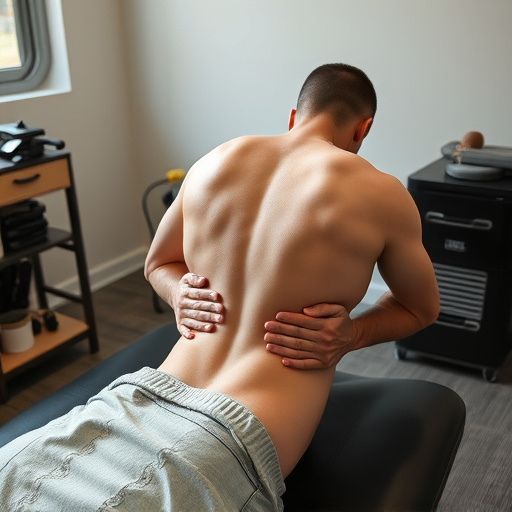
After a motor vehicle accident, rehabilitation is an essential component of care aimed at restoring physical function and achieving full recovery. The strategies employed can vary greatly depending on the severity of injuries sustained, but they typically involve a combination of therapeutic techniques. Physical therapists play a crucial role in this process, offering specialized knowledge and personalized treatment plans.
Rehabilitation may include exercises to improve strength, flexibility, and range of motion, along with non-invasive treatments such as chiropractic adjustments or massage therapy for joint pain relief. These approaches are designed to address various aspects of physical recovery, from muscle rehabilitation to stress management, ensuring individuals affected by motor vehicle accidents can regain their mobility, reduce pain, and return to their regular activities as safely and effectively as possible.
Physical therapy plays an invaluable role in the comprehensive care of individuals following a motor vehicle accident, offering specialized rehabilitation strategies that facilitate full recovery. By effectively evaluating and diagnosing MVA-related injuries, therapists develop tailored treatment plans to restore mobility, reduce pain, and improve overall functional abilities. Through dedicated care, physical therapy enhances the quality of life for those affected by these incidents, ensuring they regain their strength and independence. Embracing evidence-based practices, this critical support system navigates patients towards a successful recovery journey in the aftermath of motor vehicle accident care.

